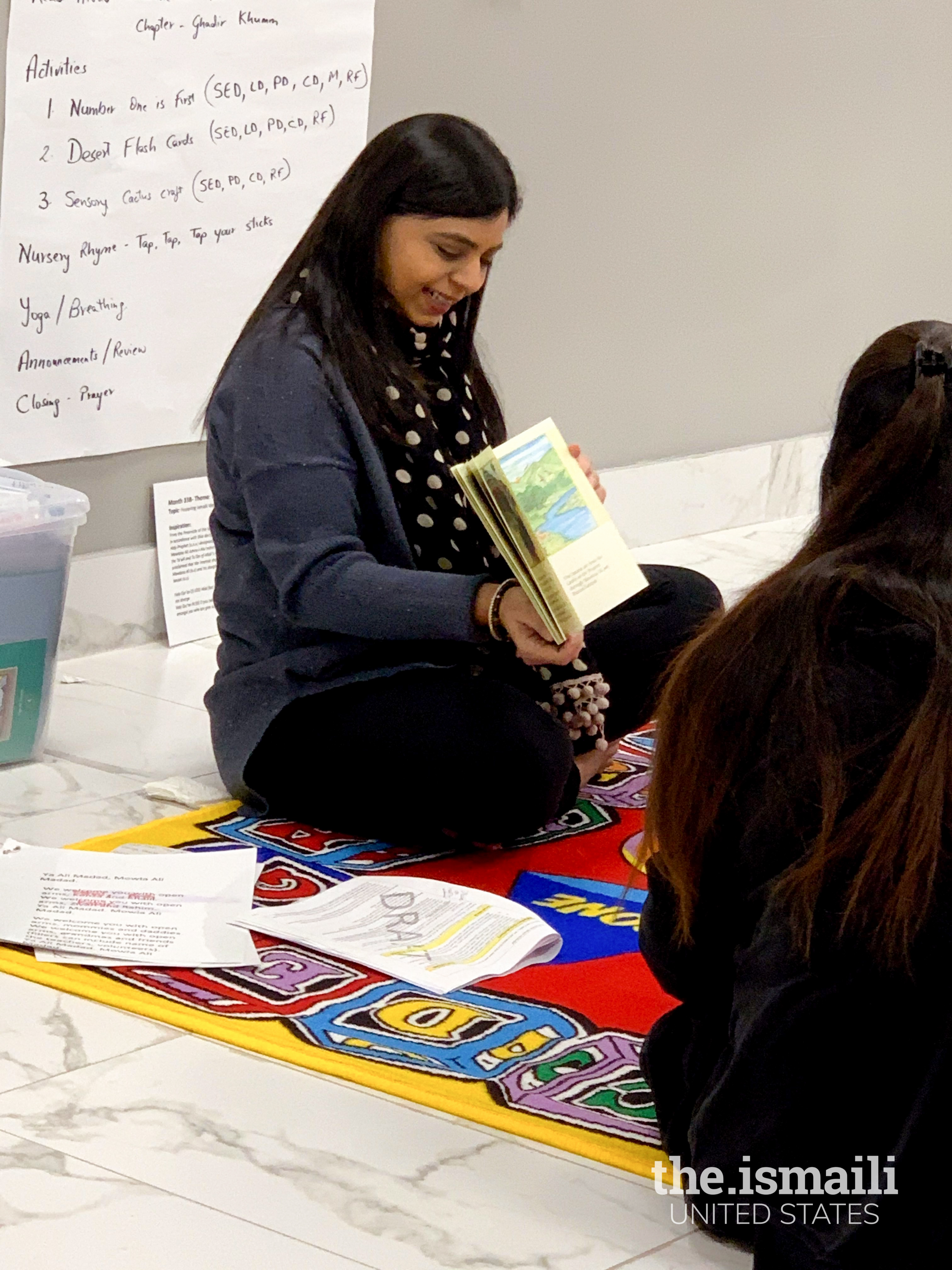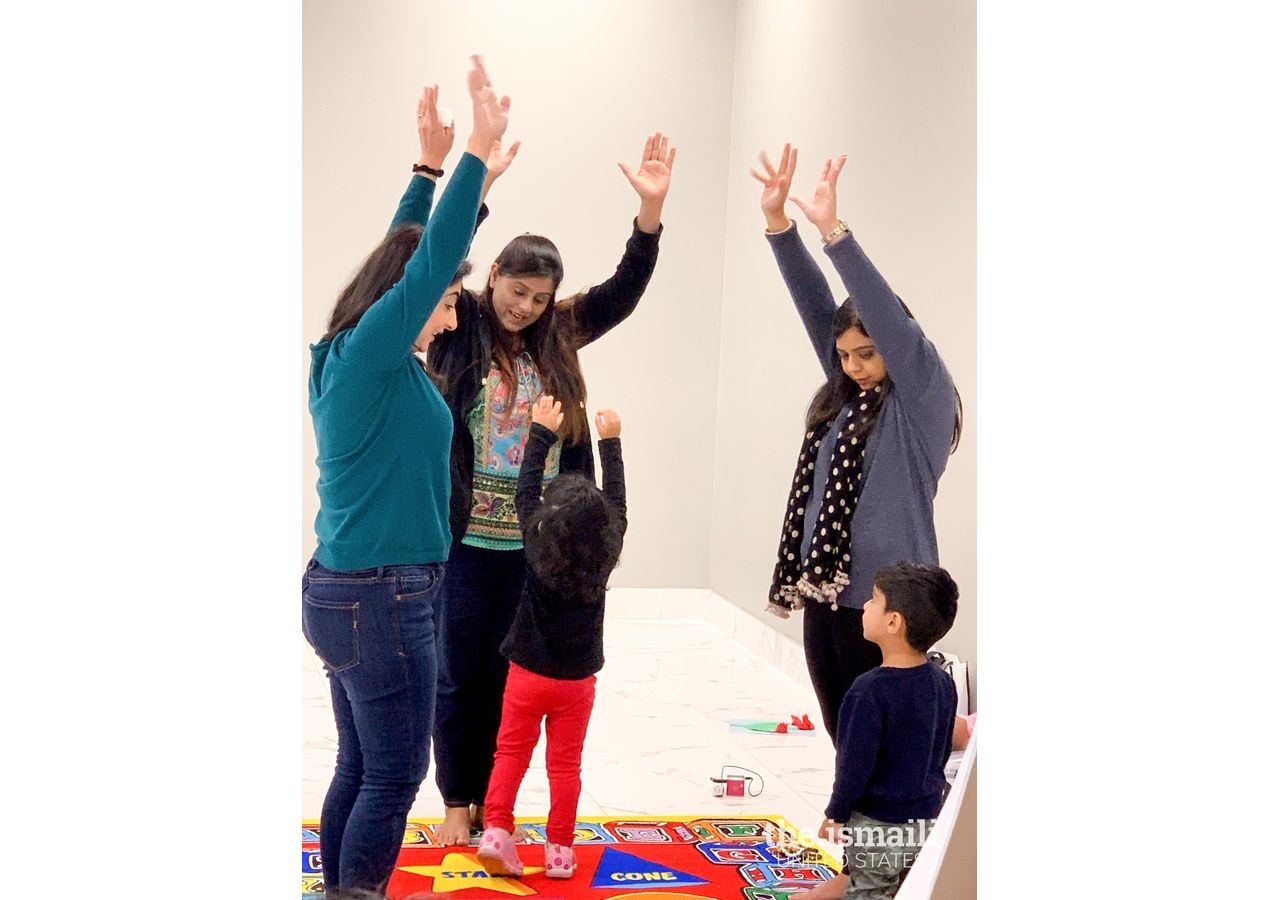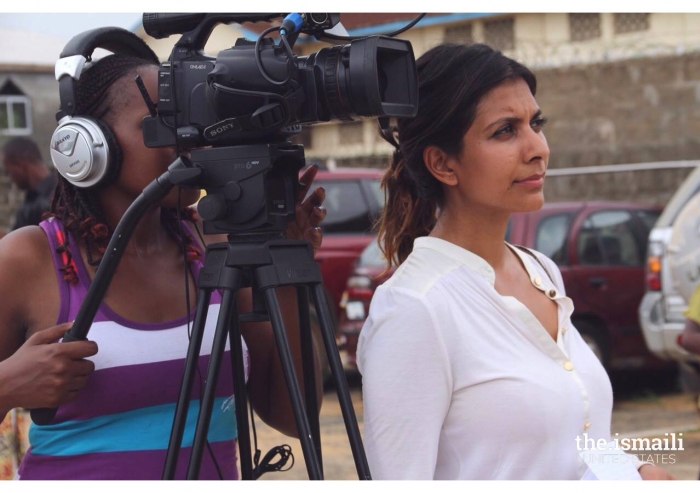NOUREEN

If you have spent time with a small child, you may remember getting questions you did not quite know how to answer. As adults, answers to questions about why rules exist or why birds sing are easy to understand, but hard to explain.
When young children participate in faith-based activities, they do so with similar inquisitiveness. However, adults may struggle to convey faith concepts to their youngest family members. Rather than shrug off questions and miss opportunities for growth, Hazar Imam issued guidance to create programs that start faith education from a child’s birth. As such, Ismaili volunteers have been hard at work for the last decade creating early childhood programs for faith education.
Volunteers Noureen Teajani and Naseem Jaffer are two such volunteers, heavily committed to building and strengthening faith education opportunities for families with very young children.
Starting a Birth-to-Three Program
“To our knowledge, Ismailis are the only faith-based community to have a faith education program start from birth,” says Noureen Teajani, National Project Manager for Center-Based Learning (CBL) for the last eight years. She had always been involved in some kind of service since a very young age. “Once you start seva, you can’t stop,” she explains.
Noureen was first a REC teacher and then part of the management team for lower primary students. She felt she always related best to the younger children, so when offered an opportunity to launch Center-Based Learning for birth-to-three, she dove in.
The legacy Early Childhood programs had no faith-based component. Rather, outcomes were tied to secular child development milestones. But when the institutions were asked to incorporate faith into every part of the curriculum, Noureen was enlisted to take part in writing the curriculum and training the teachers for the program, “Faith and Ethics.”
In 2012 she helped with the pilot rollout in Florida. With hard work and many volunteer hours, this year, the “Faith and Ethics” program for birth-to-three year olds will expand to its seventh region in the USA. This is a parent-facing program that addresses all parts of birth-to-36 month olds’ development. In their first year and a half together, the child and parent(s) go through 50 children’s books, tallying one a month from 0-24 and two a month 24-36.
The “Faith and Ethics” Program uses metaphors from children’s stories to introduce concepts like Tawhid, Nubuwwa, and Imama. For example, stories on friendship help introduce the relationship of Prophet Muhammad (pbuh) and Hazrat Ali, or images of libraries in books illustrate how the Prophet is a source of knowledge for Muslims. “Children take charge of their own learning,” explains Noureen, “and they learn through play. This allows for critical thinking which is very important.”
The impact of the program is clearest to Noureen when parents come back excited to report meaningful moments at home practicing or discussing faith with their small children. Many parents also volunteer to talk about the program or be facilitators, which shows their excitement to share what they’ve learned with their child.
Sustaining a Three-to-Six program
Naseem started volunteering for the three-to-six year old program when she was in high school. She was a teacher assistant, became a teacher, then helped evaluate quality as a teacher observer.
She had taught the same group of young children every year through ninth grade. That experience showed her the impact of early childhood education on students’ long term success. “It’s so rewarding to see them flourishing now, or getting into pre-AP classes in freshman year because of that strong, early foundation.”
She became Principal of the birth-to-six program in her region, and at the same time, Noureen and team rolled out the new “Faith and Ethics” Program. “Once I started working with the young kids in our Jamat, it was a part of me. It was something I wish I had growing up.”
Naseem is inspired by the progress she sees in the children and parents who complete the program. Some of them join the three-to-six program without any English proficiency. But as an example, by the end of the program, one such child was leading “Show and tell,” and her mother felt her child was prepared to start secondary school.
Although the three-to-six program does not target faith-based learning, it still can connect to other Jamati programs and wrap-around services. Naseem recalls “When a parent wanted to strengthen their English to communicate with their kids and schoolteachers, I made the connection to the Quality of Life group for adult classes, for example.”
Tradition of Service
Naseem and Noureen’s commitment to volunteering for so many years in early childhood education exemplifies how the dedication of Ismaili volunteers can accelerate a child’s development and strengthen social relationships, inside and outside the Ismaili community.








